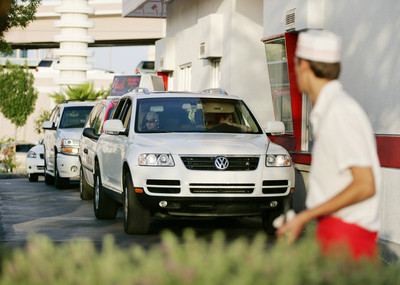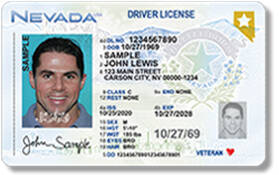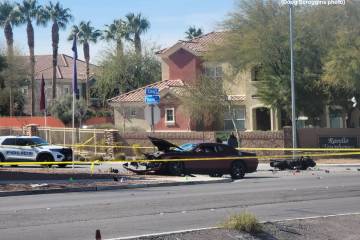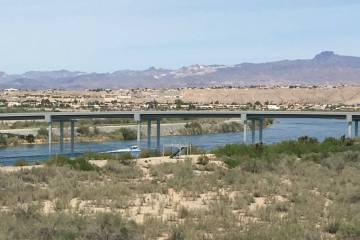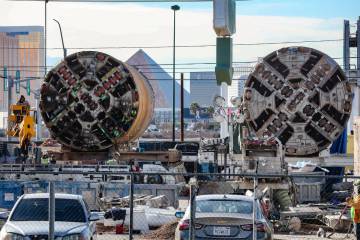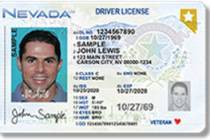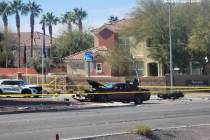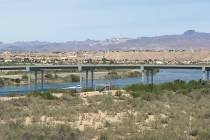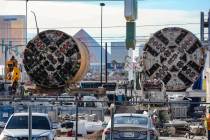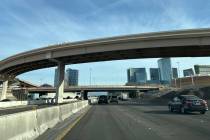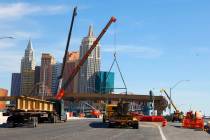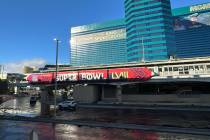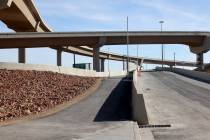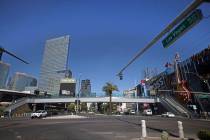Many Las Vegas drivers ignore gasoline saving tips
Every afternoon I smile when the eRJ Flash pops into my e-mail in-box with the latest numbers from Wall Street.
It's kind of an I-told-you-so smile. You see, a few months back I told some friends they should invest in crude oil futures when they cost $83 a barrel.
On Friday, crude oil broke another price record, closing at $125.96 a barrel. (Investors need about $100,000 to make minimal investments in crude oil futures, so unfortunately I didn't have the green needed to heed my own advice.)
Meanwhile, the price of gasoline we pay at the pump continues to climb higher than Sir Edmund Hillary and Tenzing Norgay.
And while we all could save money at the pump by running out and buying a hybrid automobile, we all probably can't, considering the state of the economy.
So I turned to Consumer Reports and offer these gasoline saving tips:
•Slow down on freeways. Experts recommend driving 55 miles per hour instead of 65 or 75 mph. "Slowing from 75 to 55 mph boosted gas mileage 33 percent in our sedan and in a large SUV," according to a study by the consumer advocacy group. I'm not sure how many readers are going to follow this one. When I drive home, folks still pass me and I'm moving at 70 mph.
I guess we're all worried about the extra 6 minutes it is going to take to get to the buffet at the Fiesta.
•Cut down on aerodynamic drag. Wind resistance is to your car's engine what a McDonald's snack attack-based clog is to the blood flowing through your aorta. "At highway speeds, more than half of the engine power goes to overcoming drag." Driving with a car-top carrier cut 6 miles per gallon from a family sedan's gasoline mileage, according to the magazine.
That probably means either pack less for the Yosemite summer vacation or find a closer destination, for instance Lake Mead National Recreation Area.
But if you need the roof-top carrier, upgrade to the most aerodynamic one you can find.
•Drive smoothly. If you don't slam on the brakes or step hard on the gas pedal, you can save 2-3 mpg, Consumer Reports says. "Smooth acceleration, cornering, and braking also extend the life of the engine, transmission, brakes, and tires."
That one is kind of hard to do in this town, where you have to speed up to run all those red lights.
•Turn your auto off when idling. If your vehicle is going to idle for more than 30 seconds, shut it off, Consumer Reports recommends. An 8-cylinder engine idling for 10 minutes burns about one-eighth of a gallon of gasoline.
This is a good one for those whose commute takes them through the intersection of Rainbow Boulevard and Sahara Avenue. I hesitate to say "driving" through the intersection. I've seen car's pushed faster.
•Avoid premium gasoline. Don't bother with the expensive juice unless your vehicle's manual calls for it. Most vehicles are designed to run fine on regular gasoline, according to the magazine. And the only difference you're bound to see is an extra 20 cents-a-gallon out of your pocket.
The money you save can help pay for important things like food and beer, because rising transport costs are bound to send those prices skyrocketing, too.
•Walk, bike, or carpool.
If you can't figure out how this will save you money at the pump, be careful, you might strangle yourself with a cordless phone.
•Go on "chain trips." Consumer Reports suggests making a list of multiple places where you have to go and do your errands one after another. Cool engines, which shouldn't be too much of a problem in the valley this summer, reduce fuel economy by about 4 mpg.
•Keep tires appropriately inflated. Check your manual to see what the tire pressure should be and buy one of those silver tire gauges that look like a pen from an auto parts store (they're about $1).
Consumer Reports recommends checking the pressure every month. Underinflated tires can cost about 1 mpg in fuel economy. And if you have worn tires, replace them.
There are also a few fuel-saving myths or tips of limited value. They include:
•Filling up in the morning isn't worth it. The temperature of the gasoline you buy doesn't change much throughout the day and any extra you get at cooler temperatures will not make too much of a difference, according to Consumer Reports.
•Gasoline-boosting products don't work. "In past tests, Fuel Genie, Platinum Gas Saver, and Tornado did not boost fuel economy," according to Consumer Reports.
•Don't worry about replacing your air filter every week. Since computers control air/fuel ratio, reducing airflow only reduces the amount of fuel being used, which only slows acceleration. The magazine says it has no impact on fuel economy.
•And finally, the best bit of myth-busting for us residents of the Mojave: Use your air conditioner. Air conditioning costs about 1 mpg in fuel economy, but the magazine reasons that the benefit of comfort, which increases safety, outweighs the cost. It should also be noted that opening windows while driving at high speeds has no major impact on a vehicle's aerodynamics or its fuel economy.
When it hits 120 degrees in July, saving 1 mpg isn't going to matter to a lot of folks.
If you have a question, tip or tirade, call the Road Warrior at 387-2904, or e-mail him at roadwarrior@reviewjournal.com or fmccabe@reviewjournal.com. Please include your phone number.
Graffiti removal crews from the Nevada Department of Transportation will be working at the following times and locations:
On southbound U.S. Highway 95 at Charleston Boulevard, the right lane will be closed from 10 to 11:30 p.m. on Saturday.
On Las Vegas Boulevard from Tropicana Avenue to the pedestrian walkways, the right traffic lane will be closed from 11:30 p.m. Saturday to 1 a.m. May 18.
On eastbound Interstate 215 at the Gillespie Street overpass, the right lane will be closed from 1 to 2:30 a.m. May 18. The left lane at that location will be closed from 2:30 to 5 a.m. Sunday.
The Las Vegas Public Works Department announced the following roads should be reopened by Thursday:
Ackerman Avenue, between Durango Drive and El Capitan Way, which was closed for storm drain work.
Peak Drive, between Jones Boulevard and Maverick Street, which was closed for road improvements.
The Alternative Fuels & Vehicles National Conference + Exposition will be open to the public from 9 a.m. to noon Wednesday at the Rio. There will be 100 exhibits of alternative fuels and vehicles on display. The public day is sponsored by the Las Vegas Valley Water District and the Springs Preserve.
REVIEW-JOURNAL



